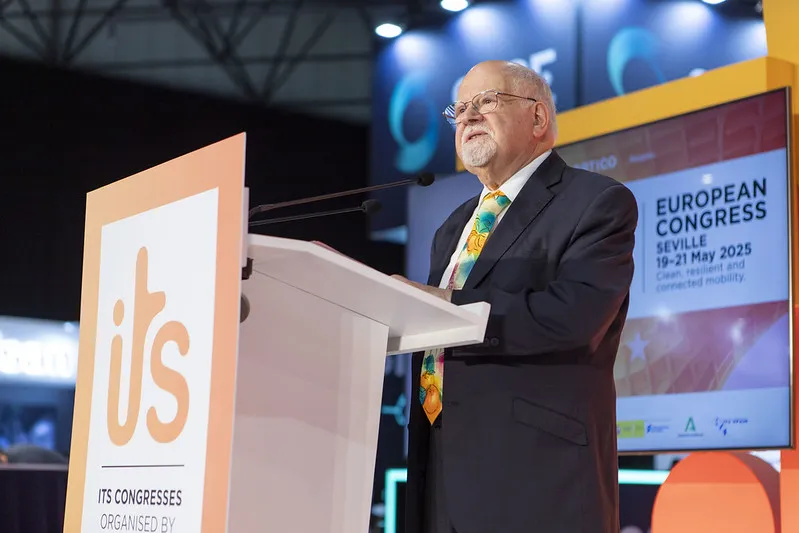Representatives of Thessaloniki’s local and regional governmental institutions have unveiled their plans for the deployment of Intelligent Transport Systems for the 2014-2020 period at an open forum on ITS during the Compass4D fifth meeting in Europe.
Thessaloniki is one of the seven first cities in Europe that has installed and will maintain interconnection and communication technologies between vehicles and smart roads. Compass4D is deploying harmonised C-ITS services in 150 taxis from the Taxiway comp
September 24, 2014
Read time: 2 mins
Representatives of Thessaloniki’s local and regional governmental institutions have unveiled their plans for the deployment of Intelligent Transport Systems for the 2014-2020 period at an open forum on ITS during the 7288 Compass4D fifth meeting in Europe.
Thessaloniki is one of the seven first cities in Europe that has installed and will maintain interconnection and communication technologies between vehicles and smart roads. Compass4D is deploying harmonised C-ITS services in 150 taxis from the Taxiway company, involving more than 200 drivers. The services have now become reality in the two locations of the pilot site; the Energy Efficient Intersection (EEI) service will be implemented along the Tsimiski Street, one of the main urban arterials in the central area of the city, whilst the Road Hazard Warning (RHW) service will be provided along the Peripheral Ring Road of Thessaloniki.
Apostolos Tzitzikostas, governor of the region of Central Macedonia, stated that “smart mobility systems are a central axis in the region’s programme for the period of 2014-2020. We aim to make Central Macedonia an internationally competitive and innovative region in the sector of smart and sustainable mobility”.
During the day, a live demonstration of Compass4D was organised in the city centre where some of the taxis equipped with Compass4D services drove through the pilot site.
“The Hellenic Institute of Transport (HIT), part of the Centre for Research and Technology Hellas (CERTH), supports the initiatives which relate to the deployment and the implementation of smart mobility systems and solutions for smart cities,” said George Giannopoulos, director of the Hellenic Institute of Transport. HIT exploits “the knowledge gained from research directly for the improvement of the daily life of travellers” he concluded.
Thessaloniki is one of the seven first cities in Europe that has installed and will maintain interconnection and communication technologies between vehicles and smart roads. Compass4D is deploying harmonised C-ITS services in 150 taxis from the Taxiway company, involving more than 200 drivers. The services have now become reality in the two locations of the pilot site; the Energy Efficient Intersection (EEI) service will be implemented along the Tsimiski Street, one of the main urban arterials in the central area of the city, whilst the Road Hazard Warning (RHW) service will be provided along the Peripheral Ring Road of Thessaloniki.
Apostolos Tzitzikostas, governor of the region of Central Macedonia, stated that “smart mobility systems are a central axis in the region’s programme for the period of 2014-2020. We aim to make Central Macedonia an internationally competitive and innovative region in the sector of smart and sustainable mobility”.
During the day, a live demonstration of Compass4D was organised in the city centre where some of the taxis equipped with Compass4D services drove through the pilot site.
“The Hellenic Institute of Transport (HIT), part of the Centre for Research and Technology Hellas (CERTH), supports the initiatives which relate to the deployment and the implementation of smart mobility systems and solutions for smart cities,” said George Giannopoulos, director of the Hellenic Institute of Transport. HIT exploits “the knowledge gained from research directly for the improvement of the daily life of travellers” he concluded.









